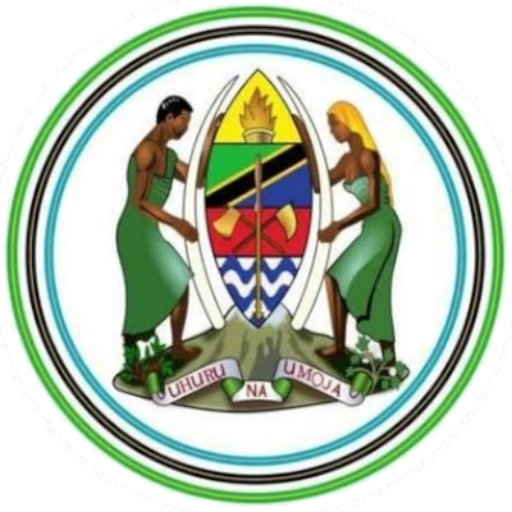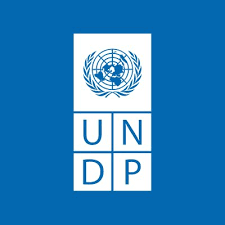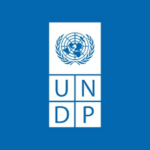Job Description
Background
General Assembly Resolution 2186 (XXI) decided to “bring into operations the United Nations Capital Development Fund as an organ of the General Assembly which shall function as an autonomous organization of the United Nations. The UN Capital Development Fund (UNCDF) assists developing countries, especially least developing countries, in the development of their economies by supplementing existing sources of capital assistance by means of grants, loans, and guarantees. UNCDF’s vision is to help mobilize and catalyze an increase of capital flows for SDG impactful investments to Member States to address the most pressing development challenges facing vulnerable communities in these countries and thereby contribute to sustainable economic growth and equitable prosperity.
UNCDF utilizes its unique capability in the UN system to deploy grants, loans and guarantees to crowd-in finance for the scaling of development impact. UNCDF focuses on where the needs are greatest, a deliberate focus and capability rooted in UNCDF’s unique investment mandate to support the achievement of the 2030 Agenda for Sustainable Development and the realization of the Doha Programme of Action for the least developed countries, 2022–2031.
As per its Strategic Framework, UNCDF works to deploy its functions as a hybrid development organization and development finance institution. UNCDF responds to Member States requests for assistance by providing targeted technical and financial advisory services on investments for development outcomes, designing bespoke financial structuring solutions, undertaking financial derisking of investments, and enhancing investment readiness of SDG aligned projects in partnership with private sector, UNOs, International and Local Finance Institutions, Development Finance Institutions as well as Foundations and Philanthropy, among others. UNCDF works to develop local financial systems, new markets and mobilize and crowd in capital from public and private sources. UNCDF is driven by a partnership mindset which enables it to deploy its different capital capabilities in highly tailored and responsive ways in order to mobilize investments flows from other sources, in particular from the private sector. By structuring transactions which are highly impactful but also recognize the need for multiplying the impact of its own capital, UNCDF seeks to position itself as a preferred partner for different stakeholders. UNCDF’s work is focused on six priority areas, including:
- Sub-national and local infrastructure financing
- Women-owned enterprise financing
- Nature and climate financing
- Energy and decarbonization finance
- Sustainable food systems financing
- Inclusive digital finance
Following a recent restructuring, UNCDF’s organizational set up includes an Investment and Implementation Division (IID), Investment and Finance Oversight Division (IFOD), Operations and Oversight Division (OOD) and a Directorate of the Executive Office. UNCDF staff and personnel are located in regional hubs based in Dakar (Senegal), Nairobi (Kenya) and Bangkok (Thailand) with sub-regional presence in a number of locations in the Caribbean and Pacific Regions. UNCDF is led by an Executive Secretary based out of New York, USA. Pursuant to General Assembly resolution 2321(XXII, para 1.a), the Administrator of the UNDP performs the function of the Managing Director of UNCDF. UNCDF is overseen by the Executive Board of United Nations Development Programme (UNDP), United Nations Population Fund (UNFPA) and the United Nations Office for Project Services (UNOPS) and performs the function of the Executive Board of UNCDF.
The Local Climate Adaptive Living (LoCAL) Facility was established by UNCDF to promote climate change–resilient communities and local economies and has evolved into a standard (ISO 14093), internationally recognized country-based mechanism to channel climate finance for locally-led climate investments in most climate vulnerable countries, in particular the least developed countries (LDCs), of whom Tanzania. LoCAL seeks to contribute through local governments to country achievement of the Paris Agreement and the Sustainable Development Goals – particularly poverty eradication (SDG 1), sustainable cities and communities (SDG 11) and climate action (SDG 13). A total of 34 countries are engaged with LoCAL, of which 27 are LDCs, 8 are SIDS and 24 in Africa, and with a potential scale up reach to half a billion people.
LoCAL aims to integrate climate change into local authorities’ planning and budgeting through the regular intergovernmental fiscal transfer system using performance-based grants in a participatory and gender sensitive manner, increase awareness and capacities to respond to climate change at the local level including through ecosystem-based solutions, and increase the quality and number of local investments that address climate change. LoCAL combines performance-based climate resilience grants (PBCRGs), which ensure programming and verification of change expenditures at the local level, with technical and capacity-building support. It uses the grants and demonstration effect to trigger further flows for local climate action including global climate finance and national fiscal transfers.
LoCAL-Tanzania
In Tanzania, LoCAL and its performance-based climate resilience grant (PBCRG) system, with original support from the European Union and the Government of Sweden, and under the umbrella of the Local Climate Finance Initiative, has been introduced in 2021 and it is being piloted by three local government authorities in the Dodoma region (Chamwino, Kondoa and Mpwapwa) to potentially benefit – directly or indirectly – more than 800,000 people, particularly women.
LoCAL-Tanzania is fully aligned with the country’s climate change response strategy, the NDCs, the National Adaptation Plan process, financial systems for local governments, and related institutional and regulatory frameworks.
The LoCAL mechanism is expected to be further institutionalized and scaled up to additional districts as of 2024, with support from development partners, in particular the governments of Norway, Belgium and European Union.
Within this context, UNCDF is seeking a Local Climate Finance Specialist, IPSA11 to lead on the effective delivery of the Programme’s activities in Tanzania, reporting to the Regional Climate Finance Advisor, (based in Nairobi, Kenya), and in close collaboration with the LoCAL global Facility and UNCDF colleagues across the region.
This position will be based in Dar es Salaam, Tanzania, with the possibility to relocate to another duty station based on programmatic developments.
More information about the project: https://www.uncdf.org/local/homepage
Duties and Responsibilities
1.) Ensure Programme Management
- Provide effective programme supervision, implementation, monitoring and evaluation, reporting and completion activities, in close collaboration with the Regional Climate Finance Advisor and the LoCAL Facility (global);
- Build effective and efficient partnerships at the programmatic and operational levels with national counterparts and development partners to coordinate and ensure successful implementation of in-country activities;
- Ensure close coordination and ensure synergies and complementarities with other climate-related projects and programmes;
- Coordinate and ensure quality of monitoring and evaluation systems of program developments and implementation (including preparation and monitoring of the annual work plan, participation in field missions, contribution to the preparation of annual reports), identify problems and issues to be addressed and propose corrective actions, and identify and track follow-up actions; This includes managing and monitoring the implementation of the programme through the effective use of the corporate ERP system, and manage the risk log of the project;
- Lead the preparation and timely submission of comprehensive technical and financial reports in line with contractual agreements and provide inputs for semi-annual reporting;
- Ensure successful implementation of the performance-based country mechanism (LoCAL) that can be up-scaled nationwide and harness international climate finance; Coordinate the implementation of audits, mid-term and final evaluations of the programme.
2.) Ensure Effective Team management
- Coordinate and plan HR needs to ensure highest technical advice and programme delivery to Programme’s stakeholders in all relevant components;
- Provide effective strategic and technical direction to and empowerment of supervisees, including through coaching and mentoring;
- Role-modelling of UN values and encouraging supervisees to act ethically both in their relationships with each other and in the business decisions and actions they take;
- Ensure effective performance management of supervisees (incl. annual individual performance plans of supervisees completed on time; regular meetings with supervisees organized during the year to monitor progress towards agreed goals, provide feedback and support; annual reviews (mid-term and annual) held on time; facilitating learning and development);
- Coordinate with supervisees in implementing various arrangements in place to ensure their safety and security and in maintaining their health and well-being.
3.) Provision of policy, regulatory and technical advice to government counterparts and key stakeholders
- Provide policy, regulatory and technical advice to government counterparts at central and local levels (e.g. Related to NDC, NAP, PFM and linkages to LoCAL, etc);
- Provide technical assistance, advice, and guidance to assigned country programs (e.g. scoping, design and design validation, writing terms of reference, memoranda of understanding, letter of agreement, recruitment and management of consultants);
- Identify and source technical expertise and support, including preparation of TORs, identification and evaluation of experts and reviewing reports.
- Lead the technical dialogue and provision of policy and technical advisory services to national and local government counterparts in relation to decentralization and climate change, climate finance and (direct) access to international climate finance and (e.g., through accreditation to the Green Climate Fund and Adaptation Fund and subsequent direct access).
4.) Facilitate knowledge management and communication
- Identify key knowledge constraints and organize learning, knowledge exchange, training, workshops, etc. to build the awareness and capacities in relevant themes (i.e. climate finance, climate change, decentralization, etc.);
- Lead the preparation of various written outputs and knowledge products on assigned countries, e.g., progress reports, draft background papers, analyses, sections of reports and studies, inputs to publications, etc.;
- Oversee the implementation of the Communication and Visibility Plan of the programme, in collaboration with project team, partners and technical consultants.
- Identify, collect, and disseminate best practices and lesson learned from the programme;
- Manage the process of convening national and regional stakeholders to share lessons learned.
5.) Promote networking and partnership building
- Serve as the UNCDF LoCAL focal point in working groups, including UN led groups, and steering committees on the issue of environment and climate change and provide inputs for conducive policy and regulatory environment (e.g. NDCs, NAP process, national climate change strategy);
- Lead, under the guidance of the Regional Climate Finance Advisor and the LoCAL Facility global team, resource mobilization efforts and articulate and enable pathways for mobilizing resources and fostering external partnerships supporting LoCAL and UNCDF more widely in Tanzania;
- Ensure partnership building efforts for effective UNCDF/LoCAL positioning in the UN System and with development partners networks.
- Ensure close collaboration with UN system, as well as to identify opportunities for collaboration and joint programming with other UN agencies and partners to maintain and/or strengthen UNCDF/LoCAL strategic positioning and presence in the country.
The incumbent performs other duties within their functional profile as deemed necessary for the efficient functioning of the Office and the Organization.
Institutional Arrangement
Under the overall guidance of the Management Specialist, the Climate Finance Specialist will ensure effective delivery of the Programme’s activities in Tanzania, and in close collaboration with the LoCAL global Facility and UNCDF colleagues across the region. The position will have a supervisory role to the national officers, field officers and drivers on the day-to-day implementation of the project.
Competencies
Core
Achieve Results: LEVEL 3: Set and align challenging, achievable objectives for multiple projects, have lasting impact.
Think Innovatively: LEVEL 3: Proactively mitigate potential risks, develop new ideas to solve complex problems
Learn Continuously: LEVEL 3: Create and act on opportunities to expand horizons, diversify experiences.
Adapt with Agility: LEVEL 3: Proactively initiate and champion change, manage multiple competing demands.
Act with Determination: LEVEL 3: Think beyond immediate task/barriers and take action to achieve greater results.
Engage and Partner: LEVEL 3: Political savvy, navigate complex landscape, champion inter-agency collaboration
Enable Diversity and Inclusion: LEVEL 3: Appreciate benefits of diverse workforce and champion inclusivity
People Management
UNDP People Management Competencies can be found in the dedicated site.
Cross-Functional & Technical competencies
Thematic Area Name Definition
Business Management - Results Based Management:
- Ability to manage the implementation of strategies, programmes, and projects with a focus at improved performance and demonstrable results. Knowledge and understanding of relevant theories, concepts, methodologies, instruments, and tools.
Business Management - Project Management
- Ability to plan, organize, prioritize and control resources, procedures and protocols to achieve specific goals.
Business Management – Portfolio Management
- Ability to select, prioritise and control the organization’s programmes and projects in line with its strategic objectives and capacity Ability to balance the implementation of change initiatives with regular activities for optimal return on investment. Knowledge and understanding of key principles of project, programme, and portfolio management.
External Relations & Advocacy - Relationship management
- Ability to engage with a wide range of public and private partners, build, sustain and/or strengthen working relations, trust and mutual understanding.
2030 Agenda: Peace - Governance
- Public Administration Reform.
Business Direction & Strategy – System Thinking
- Ability to use objective problem analysis and judgement to understand how interrelated elements coexist within an overall process or system, and to consider how altering one element can impact on other parts of the system.
Partnership management – Multi-stakeholder engagement and funding
- Knowledge and ability to forge multi-stakeholder partnerships, and remove any obstacles to resource mobilization and multi-stakeholder funding platform.
Required Skills and Experience
Minimum Education requirements
- Advanced university degree (Master’s Degree or equivalent) in Climate Change, Environment, Business Administration, International Relations, Development or related field is required. OR
- A first-level university degree (bachelor’s degree) in the fields of study stated above, in combination with an additional two years of qualifying experience will be given due consideration in lieu of the advanced university degree.
Minimum years of relevant work experience
- A minimum of seven (7) years’ (with master’s degree) or nine (9) years (with bachelor’s degree) of relevant experience in progressively more responsible positions in project management in the environment/climate change area with result-oriented objectives is required.
Required skills
- At least three (3) years’ experience in policy, regulatory and technical advisory services with national and local counterparts, reporting systems, possibly applied to areas of specialty (climate change and finance) is required.
- Previous relevant work experience, working in Tanzania and/or in Africa is required.
- Demonstrated experience and understanding of key concepts related to decentralization and local economic development is required.
Desired skills in addition to the competencies covered in the Competencies section
- Proven experience in project management and supervision of country programmes and teams, with focus on managing for results.
- Work experience with environmental sustainability and climate change and with addressing gender equality as project objective and/or cross-cutting issue in developing countries.
- Proven cross-cultural communication, able to function effectively in an international, multicultural environment and manage a team consisting of multiple nationalities.
- Strong general IT skills, including ability to work regularly with MS Office Suite.
- Strong networking capabilities and ability to associate him/herself with a range of actors (inter alia central and local governments; policy makers; regulators, donors, local communities, women and youth) with a view to building relations and facilitating links.
- Relevant experience with international climate finance, United Nations Framework Convention on Climate Change (UNFCCC) and UNFCCC financial mechanisms in particular GCF and AF with a focus on direct access
- Experience with a UN organization/agency
- Experience with UNDP Procurement Processes is desired.
Required Language(s)
- Fluency in written and spoken English is required.
Equal opportunity
As an equal opportunity employer, UNDP values diversity as an expression of the multiplicity of nations and cultures where we operate and, as such, we encourage qualified applicants from all backgrounds to apply for roles in the organization. Our employment decisions are based on merit and suitability for the role, without discrimination.
UNDP is also committed to creating an inclusive workplace where all personnel are empowered to contribute to our mission, are valued, can thrive, and benefit from career opportunities that are open to all.
Sexual harassment, exploitation, and abuse of authority
UNDP does not tolerate harassment, sexual harassment, exploitation, discrimination and abuse of authority. All selected candidates, therefore, undergo relevant checks and are expected to adhere to the respective standards and principles.
Right to select multiple candidates
UNDP reserves the right to select one or more candidates from this vacancy announcement. We may also retain applications and consider candidates applying to this post for other similar positions with UNDP at the same grade level and with similar job description, experience and educational requirements.
Scam alert
UNDP does not charge a fee at any stage of its recruitment process. For further information, please see www.undp.org/scam-alert.
To apply for this job please visit estm.fa.em2.oraclecloud.com.


